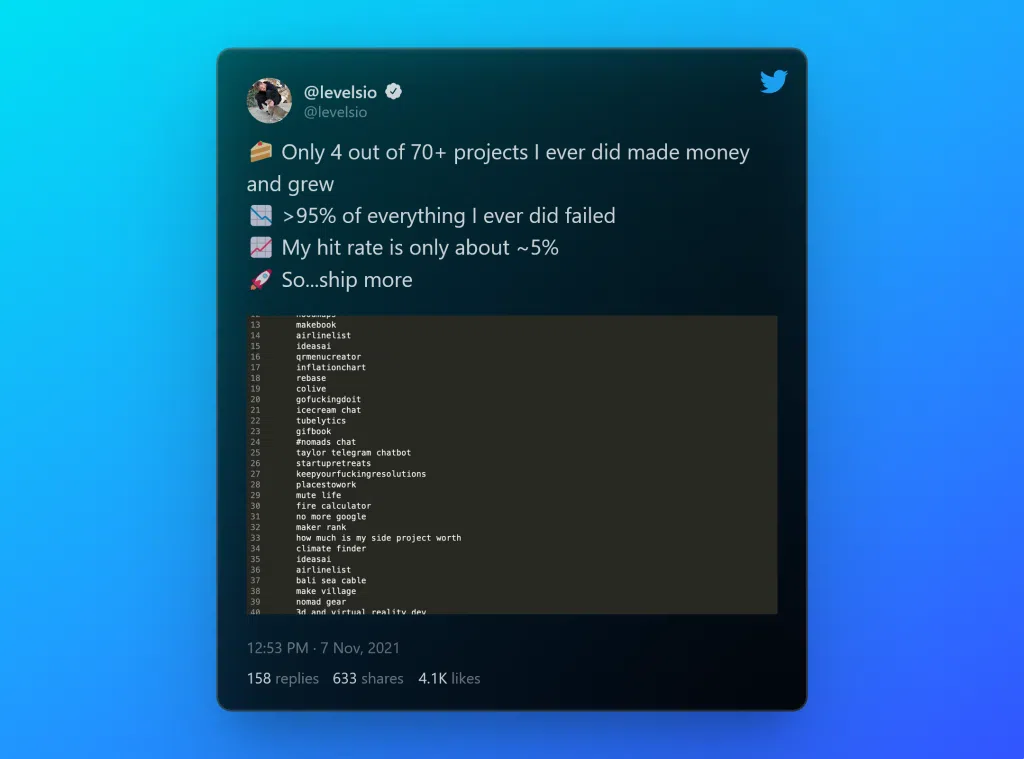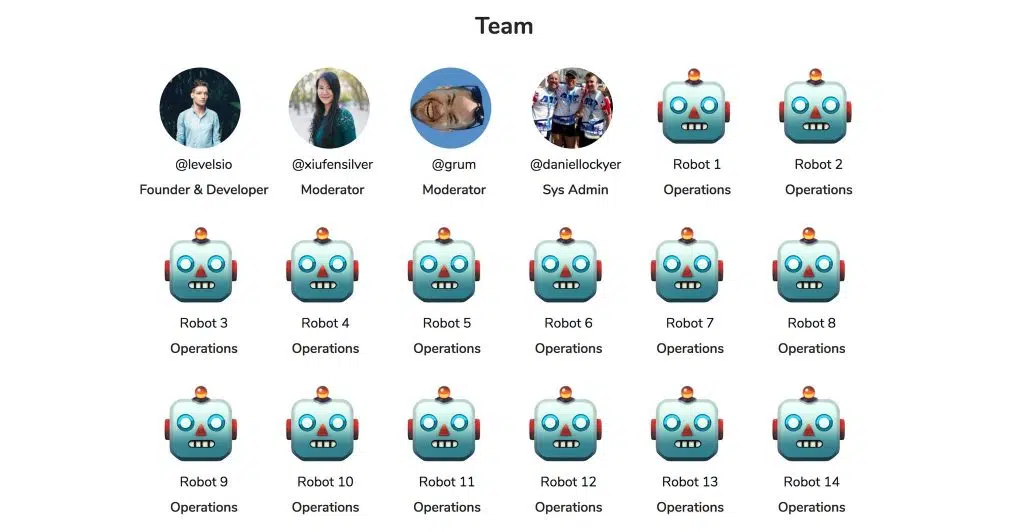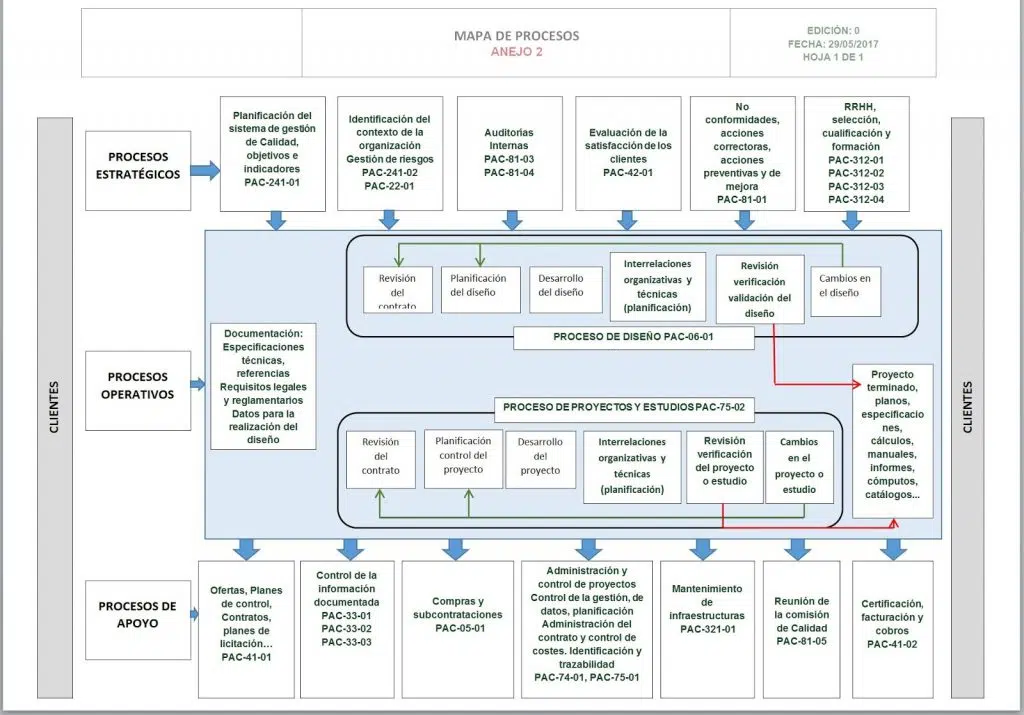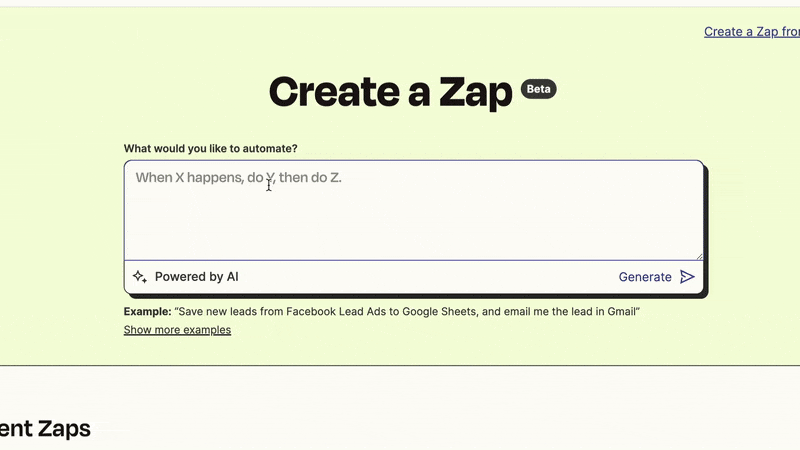The virtuosity of the solopreneur with the phenomenon Pieter Levels.

Solopreneurs can be found in any digital industry, including newsletters, podcasts, affiliates, courses, influencers, YouTubers, etc. But my passport bro, Pieter Levels, conquered me; he is dedicated to technology-based micro startups, he builds SaaS (Software as a Service) mainly, and I followed his adventures for almost ten years; in 2014, Pieter said he was leaving everything, took a backpack, and told Wired that he was going to travel the world for 12 months, to set up 12 startups.
Time has passed, he is now 36 years old, he has traveled the world, mainly Asia; and it is not that he has set up 12 startups, but he has set up 70 micro-projects, he has reached peaks of 3 million in annual turnover, now he is at 2.8 million approximately and a portfolio valuation of between 15 to 17 million dollars, and in costs, I do not think he is spending much more than 10,000 € in servers.
We could go into trivializations, thinking, Oh, these indie hacker guys who go in flip-flops what things they have! But the valuation of Pieter Levels’ portfolio corresponds to the average salary of a CEO of the S&P 500.

Of the 70 micro-startups, in 2021, only four survived, and in 2023, not 4, but 7 are still going on; of the 7, their flagship projects are Nomadlist and RemoteOK, platforms specialized in remote work; Levels was one of the great pioneers in the remote work community, but it did not stay here, it has caught the wave of Generative AI very well, and launched InteriorAI and PhotoAI, and the leadership has earned it by heart, not because there is an organization chart in this Internet jungle, but by the number of times it is copied.
This is the metric in this world about InteriorAI; the following month after its launch, copies of other entrepreneurs, startups, and big companies came out worldwide; copying is neither good nor wrong; it is simply a univocal sign that you will always be behind.
And you might think, oh, this guy, he has gone out of the system, wrong, he lives with $4,000 per month, of which he spends $2,000 on plane flights (experiences, he does not spend money on objects), he has not bought the Ferrari, nor the mansion when you remove the status in the equation of your life, everything is simplified to the minimum expression, he lives with very few objects around him, he is minimalist and goes light, clothes, laptop, mobile, Internet connection, and the backpack.
So what does he do with his money? He invests most of it in the S&P 500 ETF index and reserves another part for Bitcoin. Then we could say that he has become a new premium investor of the index that unites all the big American multinationals, those who call him the “antisystem outsider” are the ones who receive his millions from investing in their companies on the stock exchange, making him the de facto “prosystem.”
How did he launch 70 micro startups in less than 10 years and with close to zero investment capital?
The answer is straightforward, projects like Solopreneur are based on five fundamental characteristics:
Speed.
It is achieved with tiny teams; the more extensive a team is, the less innovation capacity is obtained; taken to the extreme, from the most basic unit, the founding individual, is when you can apply more speed in developing a technological idea. This Dutchman takes 1 or 2 months from the ideation phase to production and does not create minimum viable products, a crass mistake inherited from design thinking and other canned consulting stories.
The MVP is valid for physical products, prototyping a lamp, or designing a coffee maker; in the software, we have to get a finished product in version 1.0 with the core functionality (the problem you solve). If it works, and people pay for it, then go ahead and continue with 2.0, 3.0, and 9.0; if it does not work, set up another project; in any case, the term beta, I try to eliminate it from my vocabulary.
Do not spend two years doing interviews and customer surveys before launching the software. Refrain from entering into analysis paralysis; customers only know what they want once you show and try it. Make sure you solve a particular problem, and the second derivative, make sure that others have the same problem and, more importantly, that they pay you for it.
A simple, finished, and robust software in a v1.0, to which you add all the new functionality you want once you get paid, is worth more than an MVP V9.0 churro with no working buttons. No one understands it, and no software conceptualized as MVP will validate it, let alone pay you for it.
Simplicity.
Pieter Levels’ projects are extremely simple, he does not complicate his life, and he is self-taught in programming, but he always explains that his level is minimal and uses old, robust, and easy programming languages; he turns this limitation into a strength, as it forces him to an extreme simplicity in his products.
In a technologically complex, saturated, and noisy world, finding an easy product is a blessing; simplicity always sells, and there are no tricks.
Resilience.
A priori, the opinion or value judgments that generate solopreneur companies is that of a weak structure due to having a single entrepreneur and a minimum team of collaborators. Still, our strength is not in our number of employees but in the diversification of our customers; by working globally, “the world is ours.”
When you work locally or nationally, any setback, problem, or law that may arise in your country can directly affect your company; in global risk is distributed, in that sense, the probability of a tragic global event occurring in scale, is much lower than the probability of local or national instability, solopreneurs have gone through solid events, absolutely improbable and international as the pandemic of covid, or volatile economic situations internationally, and we grew a lot in these crises in scale.
When you diversify your value proposition for the Fortune 5,000,000 (to quote Jason Fried) rather than the Fortune 500, we acquire thousands of clients with minimal monthly and annual tickets. Still, that variety makes these companies resilient; from one, we service thousands, in the case of Pieter Levels, tens of thousands of clients.
By offering our products through subscription, there are no big surprises; they are very stable and predictable businesses, at most your business, in the worst case, in a horrible month or a catastrophic quarter, drops between 10% to 20%; however, when the explosive growth comes, and the wave comes, we can grow at rates of 200%.
Autonomy.
We do not have investors backing our activities financially, nor do we have a board of directors dictating strategic decisions to us, nor are we subject to the pressure of a possible market exit or a quick sale in the short term.
We recognize our ethical responsibility to exercise our autonomy freely. To take actions that would not be authorized, to experiment with ideas that other companies would avoid out of fear or caution. We deviate from the conventional to bet on the innovative.
This independence allows us to innovate, from the minimum unit to the individual.
Automation.
It would be tremendously unfair to say that solopreneurs are alone; it is not true; foundationally, we are alone. Operationally for each Solopreneur that is born, 3x collaborators or contractors are created, in different modalities, for hours, half days, full days, in your country or 400,000 km away; the vast majority of us work remotely in a native way.
Collaborators who help us to carry out our projects, we do not create purely contractual relationships; these business structures are microscopic; we establish a relationship of closeness to dazzle our collaborators with our ideas and technological developments, to collaborate and work as a team on something that we like and motivates us both collaborators and founders.
They are usually brilliant people, and we work and manage this environment to create continuous challenges and challenges to maintain motivation and interest in the work they are developing; we work with our closest people, combined with the talent we find anywhere in the world.
This is more or less the configuration for a project of this type, Pieter Levels takes this concept to infinity, and among his 70 projects, seven work for him, and for those 7, he needs three people to bill almost 3 million a year. They are not full-time two moderators of their communities and an administrator for the operation of the systems. He and his robots do everything else.

The Dutchman stands out extraordinarily by the high level of automation that all their projects, bordering on excellence, have programmed and deployed more than 2,000 scripts (a script is a sequence of commands used to automate tasks and installations in a system); we could say that has reached 98% automation in their companies, this is the only way to offer technology products to tens of thousands of users from the foundation of a solopreneur, there are no more mysteries.
I am over 90% automation level. Automating from 0 to 90% can be a relatively “easy” task; automating from 90% to 100% is virtuosity; here, the degree of complexity is very high.
GenAI in process automation.
Where the revolution we are living with Generative Artificial Intelligence is taking us, it is taking us to a multiplication factor of x10, x100, and x1000 in the future, in these automation tasks, to the classic automation process that we call scripting, in the last decade, tools such as Zapier have joined the traditional automation process, acting as intermediaries between APIs to automate processes. Still, we are entering a new level; the ChatGPT or AutoGPT plugins interconnect any app in a serial process; if Zapier and GPTs are joined, the magic happens.
Any type of process, in virtually any type of enterprise that considers itself digital, will go from here:

To here:

I hope you enjoyed the article and wish you a happy automation.

Vizologi is a revolutionary AI-generated business strategy tool that offers its users access to advanced features to create and refine start-up ideas quickly.
It generates limitless business ideas, gains insights on markets and competitors, and automates business plan creation.


